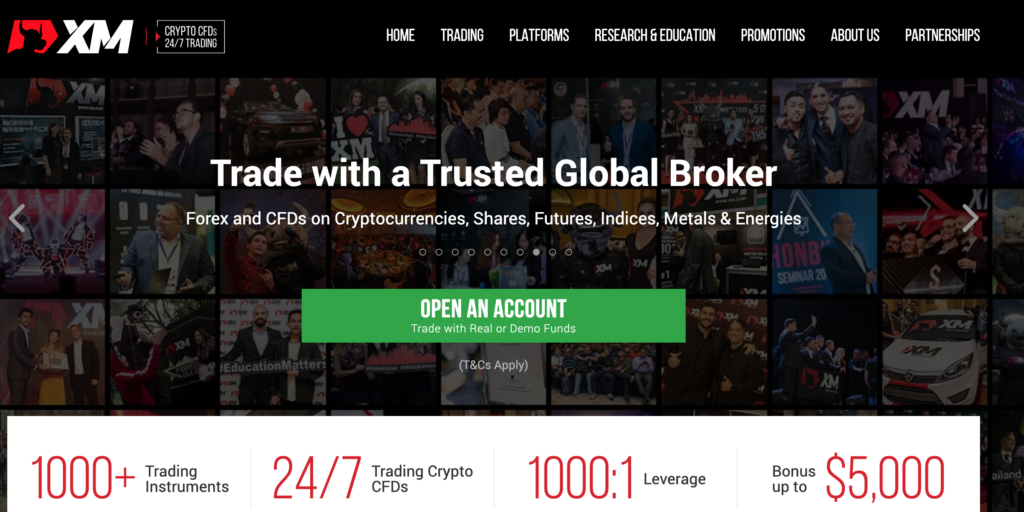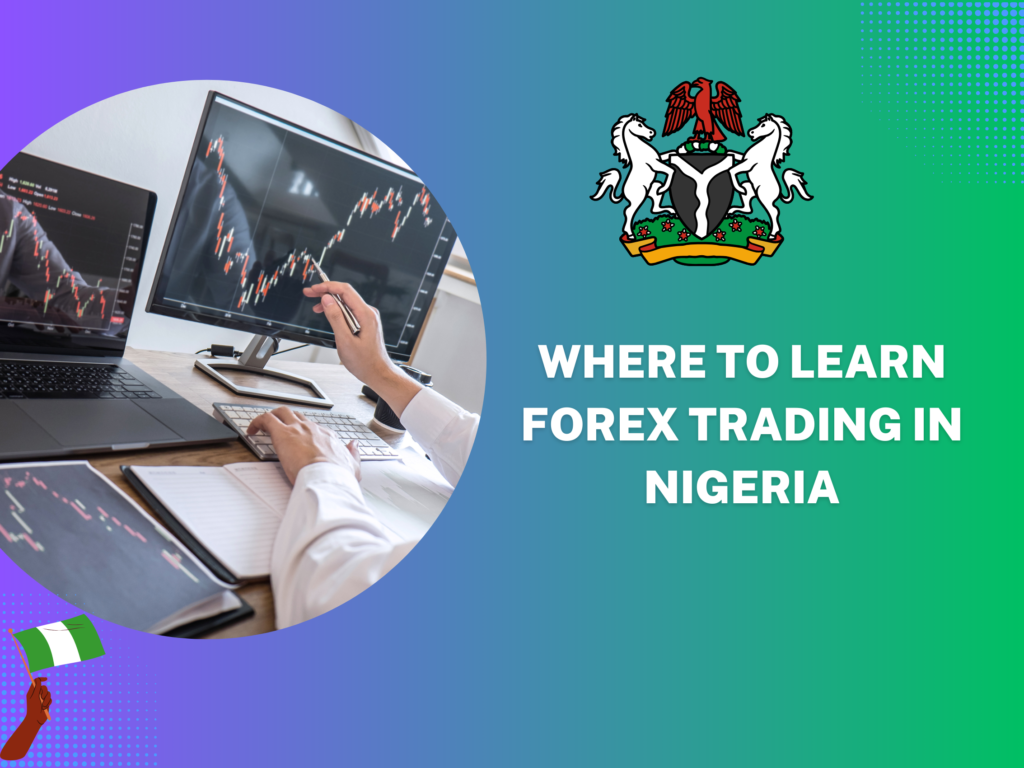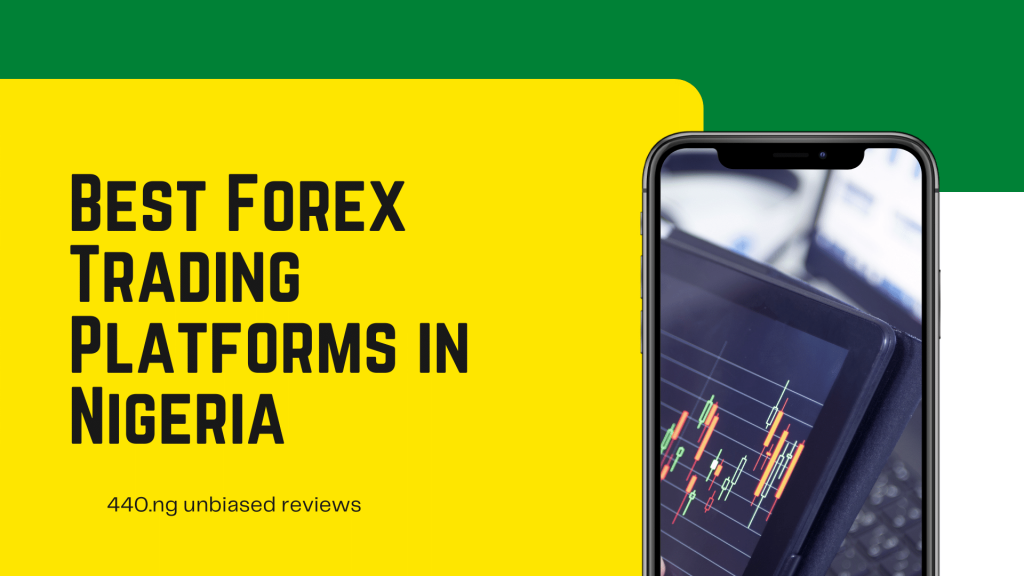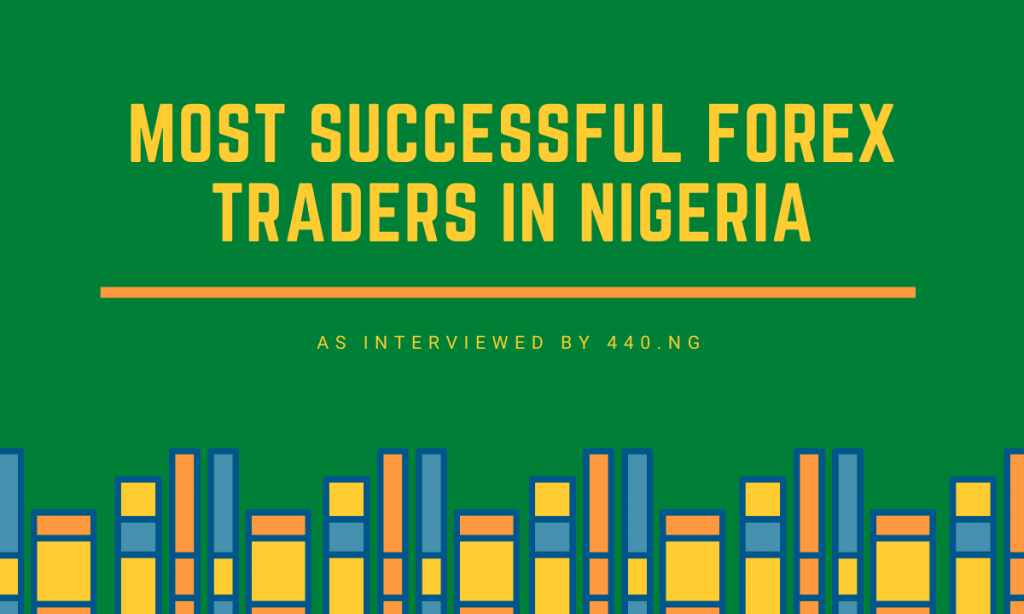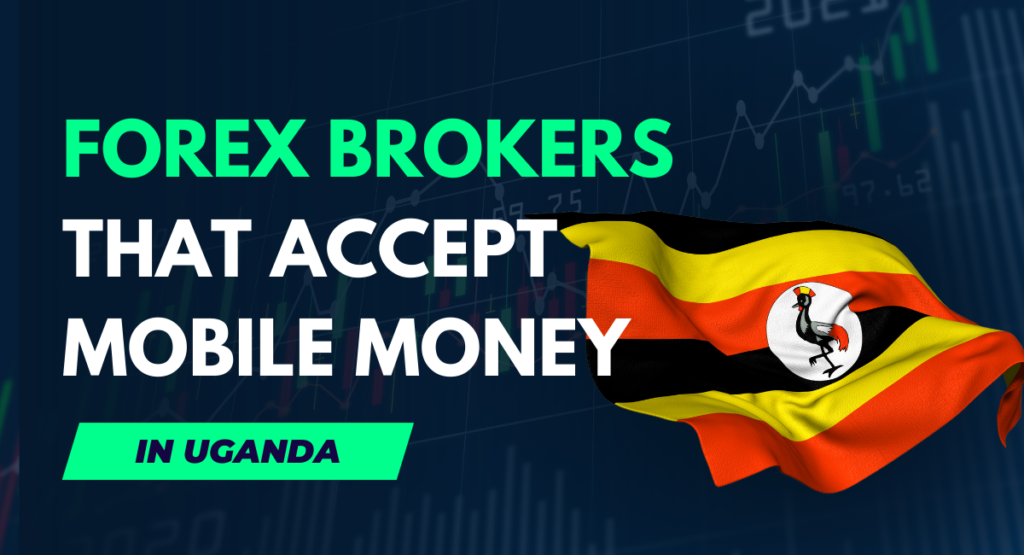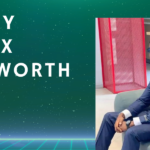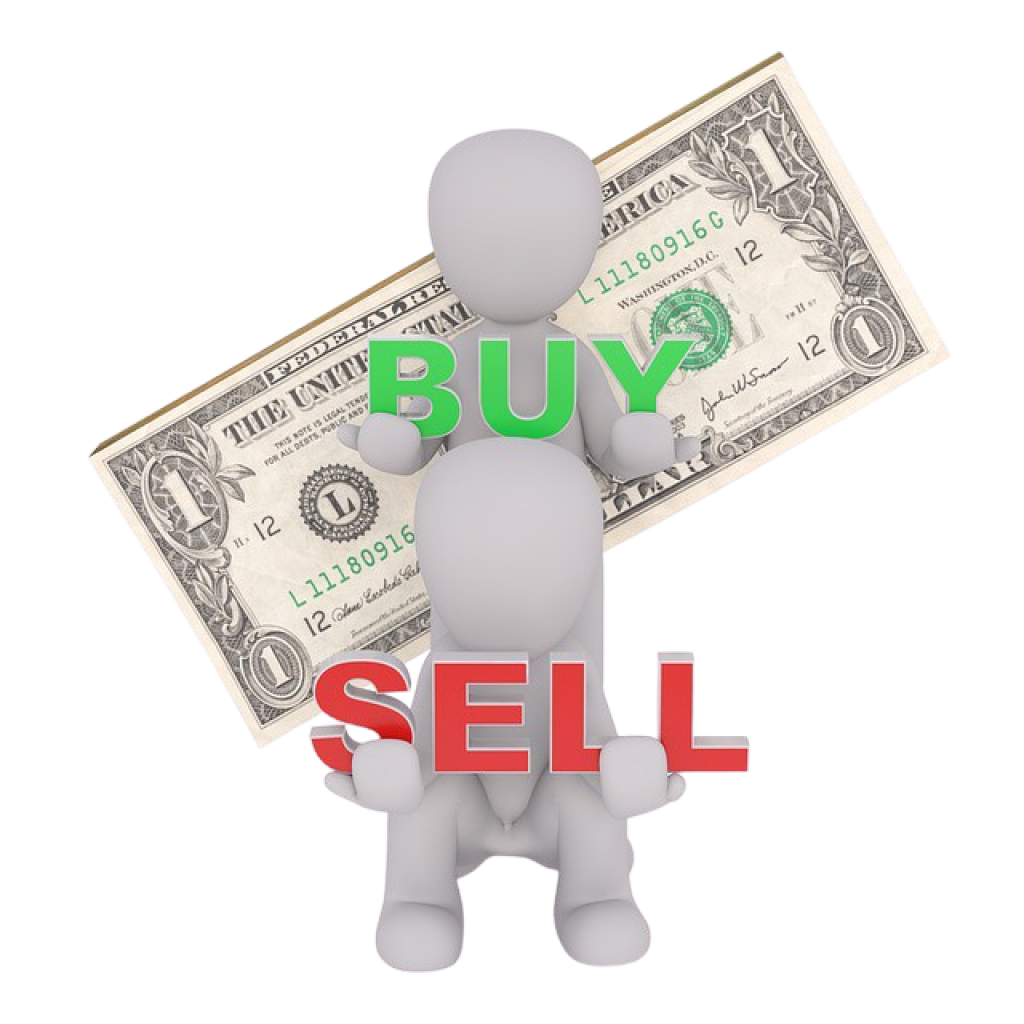
How to Make Money Through Forex Trading in Nigeria
The Ultimate Beginner’s Guide
The Online forex trading market is a 24 hours market (Mon-Fir), where currencies of the world are exchanged, typically via forex brokers. As an example, you can buy US dollars using Euros or sell Japanese Yens to buy British Pounds.
If you are interested in forex trading, it is understandable that you might have questions about the feasibility of this industry. Luckily, you came to the very right place.
At 440.ng, our goal is to help forex traders in Nigeria learn, invest, and profit from the lucrative forex trading industry.
We understand that you have questions and towards that end, we have made every effort to answer as comprehensively as possible some of the common forex trading questions including:
Table of contents
- What is Forex Trading and How Does it Work?
- How to Actually Make Money Trading Forex in Nigeria
- 4 Points to Remember When you Get Down to Trading Forex in Nigeria
- How to Choose the Best Forex Brokers in Nigeria
- Most Important Factors to Consider When Choosing a Forex Broker
- 2. Transaction Cost
- 3. Deposit and Withdrawal
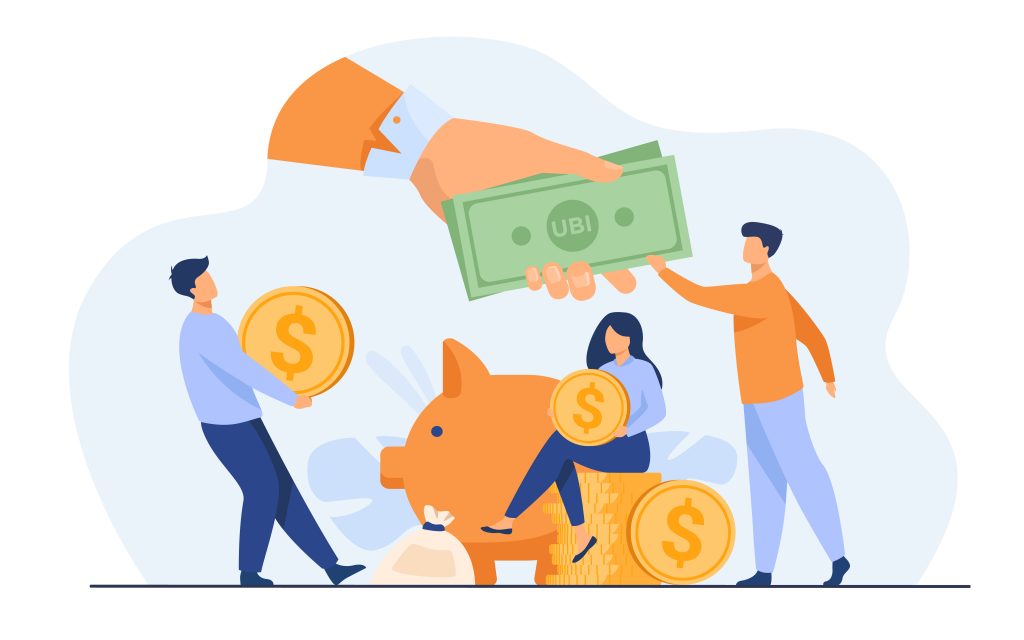
What is Forex Trading and How Does it Work?
I always get asked about foreign exchange, about how it works and how to trade it. People assume it’s a lot more complicated than it is.
Hopefully I’ll be able to dispel that myth by breaking it down and explaining how it works.
I want to keep this forex trading tutorial simple enough for beginners, and hopefully avoid boring you, so that by the time I’ve finished, you should be able to go away, knowing how to trade and make money with forex trading in Nigeria.
Forex stands for Foreign Exchange Market also called The Currency Market. In this market the only thing that is traded is money.
Different countries money is worth different amounts and is always changing value that is why you trade in the Forex to gain profit from the change of value in different currencies.
There are seven major currencies that the world trades these are the economic powers on the globe. All of these currenceis account for 80% of all trading in the Forex Market.
The Majors Are:
- The US dollar (USD)
- The Euro (EUR)
- The British Pound (GBP)
- The Swiss Franc (CHF)
- The Canadian dollar (CAD)
- The Australian dollar (AUD)
- The Japanese Yen (JPY)
The Forex Maket has no central location because it is made up of many markets all over the world all run on computers. This makes it the largest market on earth that does over 6.5 trillion dollars a day.
The big boy’s within this game are the Banking institutions, Hedge Funds and financial organizations. Nevertheless, due to new regulations as well as introduction of online Forex trading platforms just about anybody is now able to begin trading foreign currencies.
That is what makes this such a great market for forex traders in Nigeria. The volume and price movement is large and it is easy to make money quickly. The wide price movement also makes it very easy to lose money quickly.
When trading, the currencies are traded in pairs. One currency is bought and the other sold. The major currency pairs in the forex market are the US Dollar (USD) Japanese Yen (JPY) the Euro (EUR) the British Pound (GBP) Canadian Dollar (CAD) Swiss Franc (CHF) and the Australian Dollar (AUD)
Trading Forex vs Stock Market in Nigeria
Forex trading is superior to trading stocks in many ways. Foreign currency prices are usually not greatly influenced by institutional investors. In stock trading, we have a limited level of volume each day. Every stock has a certain volume of shares on the open market and the stock price is dictated as a result of the number of individuals wanting to sell or buy shares at a certain moment in time.
Foreign currency trading is available twenty-four hours a day. With the stock market, you may trade from Monday through Friday when the exchange is open. When an important news story breaks while you are holding a stock, and it is after hours, you are left holding onto your position till the marketplace reopens the following day.
Another great advantage of forex trading is that you can profit in up or down markets, it is actually as acceptable to trade on the down side as it is to the upside. You can be “Short” or “Long” on any currency pair.
Dipping into History of Forex Trading
To begin, I just want to give a brief explanation of what the foreign exchange market actually is and the basics of how it works. Later we’ll look at what affects it and how you can spot those things before anyone else.
Throughout this tutorial, I’ll be referring to foreign exchange as ‘forex’. That’s how it’s known and no doubt you’ll be familiar with the term; I’ve used it a lot in the past when telling you about the various ‘forex’ predictor systems that you can follow.
So, where do we begin? In 1944 actually, at a place called Bretton Woods. There’s no need to go too much into it. But basically what happened is a load of economists and politicians got together and fixed their countries currency rates together.
For example two dollars was worth one pound, and one pound was worth one and a half deutschemarks, and that was pretty much that.
It went on like this for a while, but all the time causing quite a lot of financial strain around the world, until in 1971 the plug was pulled. America decided they weren’t playing anymore. And gradually from that point the world shifted to what’s known as a ‘floating currency rate’. That’s what we know today…
One day the US dollar might be worth 381 Naira, the next it might be worth a 379 Naira – the exchange rate is always fluctuating. It’s this fact that creates an enormous potential for you to make money trading forex. But before we look into the how, we need to cover another basic element of the forex market… And that involves looking at how the big players make money on the forex market.
How the Big Boys Make Money on the Forex Market
A generic statement but an important one: The forex ‘market’ is made up of the buying of one currency and the selling of another.
What does that mean, in English?
Well, in the forex ‘market’ all currencies – the dollar, the pound, the yen, etc – are ‘paired’. You might have the dollar and the pound, the dollar and the yen, or the yen and the pound. These pairs are fundamentally linked.
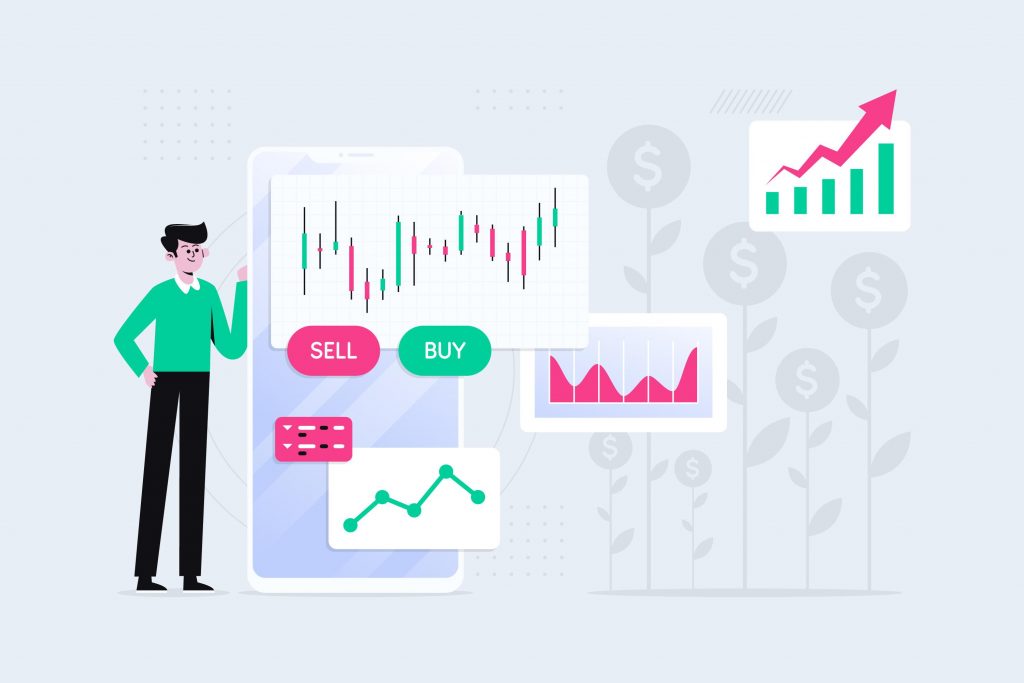
When the dollar goes up another currency must go down. So the dollar might go up and the pound might therefore go down. This is because people are ‘buying’ dollars and ‘selling’ pounds. A month later though, the dollar might go down and the pound go up. This is because people are now buying pounds and selling dollars.
Simple, right?
Chances are you’re already on that. A quick bit of lingo… In a ‘currency pair’ we would say that when one currency goes up it is ‘strong’ against another. Alternatively we can say that when one goes down it is ‘weak’ against another. Both mean essentially the same.
So you can see that if someone were to buy a load of pounds when the pound was ‘weak’ (not worth much) and then a month later sell them when the pound was ‘strong’ (worth a lot), they’d make money.
There are numerous reasons why they’d choose to buy or sell at a certain time and we’ll look at those in another instalment.
And it is worth mentioning that we’re not going to worry about buying currency itself – too much of a complicated business in my opinion (although I hope when we’re done, you’ll understand how you could). Instead we’re going to look at how we can take advantage of this buying and selling to spread bet on a short term basis for quick profits. But first we need to find out why the price of a currency actually changes…
Jim, Kent and the Little Something we Call Sentiment
Jim runs his own trading company, and he says to Kent, his American buddy who works for HSBC: “Your new boss, that Biden chap, he seems pretty good. Reckons he’s going to fix the crisis.”
“Y’all you Brits think so, but I aint so sure. Doubt he’s experienced enough to play with the greenbacks,” suggests Kent.
“Suppose so, but I still think he’ll be rather good for America,” ponders Jim.
“We’ll see.”
And so go conversations like this around the world…
Some people think Joe Biden will be good for America’s economy; some people think he’ll be bad. Whichever opinion has the most supporters will become what we know as ‘sentiment’. And this sentiment will influence a lot of things.
But we’re concerned with how sentiment influences one thing in particular… How it influences the value of a currency!
Previously we started looking at how we can make money in the foreign exchange – or ‘forex’ – market. We looked at how the market started developing after an international decision in the 70s to let the price of currencies fluctuate naturally.
We looked at how currencies go together in ‘currency pairs’ – when the price of one goes up, the price of another goes down. And we saw how the price goes up when people ‘buy’ the currency and the price goes down when people ‘sell’ the currency. Now we’re going to look at WHY people buy or sell – what influences the prices of currencies in the forex market?
The Key Factors That Influence the Forex Market
Sentiment is just one of the key factors that influences whether people buy a currency or sell it. Ask any forex trader, amateur or professional, and they’ll tell you they follow certain factors and not others.
I am personally a big believer in sentiment – I think it has a big effect. And I think it has a cumulative effect too because in a way sentiment can effect all the other technical factors too.
Anyway, I’ll tackle that first… So how does sentiment affect currencies? Well you see, Jim, our Biden supporter, might think the value of the dollar will go up because Biden will strengthen the US economy. He’ll ‘buy’ dollars, which in turn will push the price up. Wheareas Kent, our Biden sceptic, would most likely ‘sell’ the dollar as he doesn’t think Biden will strengthen the economy and the dollar will go down.
And as I say, whatever the overriding sentiment is will have a net effect of the dollar going up or down. But I do admit sentiment is quite an intangible factor.
There are more technical factors which have an effect too. For example… A country’s interest rate can influence how strong a currency is. (Remember: A currency is referred to as being ‘strong’ against another when the price is going up and ‘weak’ when the price is going down.)
The currency of a country with a high interest rate tends to be stronger against the currency of a country with a low interest rate. High rate: strong currency. Low rate: weak currency. This is based on an assumption that countries with a high interest rate will attract more foreign investment (to benefit from the high rate) so more of the currency will be needed.
On top of that, if interest rates are higher, that country’s domestic consumption – how much stuff people buy – will fall so there will be less demand for imported goods and people won’t need foreign currencies.
However, as is always the case in such theories – the practice doesn’t always follow, which is why we can’t ALL make money easily. We have to consider other factors too… Such as inflation. And this one is simple… If a currency is worth less, no one wants it. So they sell it before it loses more of its value. Bingo.
You can start to see how even though these things look complicated on the surface, it doesn’t take much to get to the bottom of it. So, we’ve got sentiment. We’ve got interest rates. We’ve got inflation… What else can influence the strength of a currency?
Forex Markets Really Come Down to Common Sense
Sentiment and interest rates take a bit of explaining, but like the effect of inflation, the other factors really come down to common sense.
Take economic growth… If a country’s economy is growing then it naturally follows that its currency will get stronger. More people will invest in a growing economy, so there’ll be higher demand for the currency.
Another factor is whether the country itself is aiming to have a weak or strong currency. A country might want a weak currency so that it costs people too much to import stuff into the country, in which case they’ll be forced to buy stuff produced inside the country. And a weak currency will help a country’s export trade, because foreign countries will be able to buy the stuff cheaper.
Phew…
We’re getting a bit academic there so let’s sum that up.
Basically, you can see that there are a number of factors that influence the value of a currency. It’s important that you get that. But here’s the thing… It doesn’t matter. Well it does to an extent but in truth you don’t need to worry TOO much about all that.
And here’s why…
When it comes to trading on the forex market the key thing you should look for are trends. The wisest trader will always follow the trend. So that when a currency is strong they’ll buy it and when it is weak they’ll sell it.
All that we’ve explored here helps in that you understand WHY a certain trend is occurring. And it helps give you a better idea of when a trend might end. But for the beginner trader, for anyone new to the market – the trend is king.
Getting in and out quickly on a trending market is the quickest and easiest way to make money from forex trading. That above all is what we’re interested in.
So, we’ve seen the ‘why’. But next we’re going to begin to look at the ‘how’… How do you get in and out on the trends, how do you grab those speedy profits? I hope despite having gone through the sometimes dry background, the potential for profit here is incredibly exciting. When we’re done with this beginner guide, you’ll hopefully be in a position to experience that excitement first hand.
How to Actually Make Money Trading Forex in Nigeria
They must think me strange in my old local… Rather than chatting about football and women, there I was explaining how to make money trading forex in Nigeria. I apologized to Pete, the barman, but he wanted to know more.
Stop me if I’m getting technical, I say. But he’s laughing at me… “Nah, I love it, plus, what you’re saying’s easy.” He’s right. In the last few paragraphs we’ve looked at how the forex market came about and what influences people when it comes to buying and selling currency.
I also said that ‘following the trend’ is the easiest – and cleverest – way a beginner can make money on the forex market. Now I’m going to explain exactly what I told Pete – the very ‘non-technical’ technicalities behind forex trading and how you can start forex trading in Nigeria. Placing forex trades really is as simple as:
- Point to the currency pair you’re after.
- Click on it.
- Type the amount you want to bet and a stop loss.
- And then click it again and your trade is placed.
But what’s all that mean? And where do you do that exactly?
First off, I personally think the clearest and most easy to use trading platform is FXTM and HotForex. You’ll find most people in Nigeria agree with me. Read the Full HotForex Review and FXTM Review.
A little later I’ll show you how you can set up an account with these brokers. For now though all you need to know is that when you log into FXTM on your screen you’ll see something a little like this… On the left there you’ll see a list of trades. Where you see ‘Spot FX’ and then 2 3-letter codes separated by a slash – that’s your forex trades. Bingo.
We already know what a currency pair is – that’s the currency that’s being bought and the currency that’s being sold. The 3 letter codes are the currencies themselves. So GBP means the British pound and EUR means – yup, obvious right – the Euro… USD mean US Dollars, JPY Japanese Yen, AUD Australian Dollar and so on.
Let’s say we think the current trend is for the Pound to go up against the Euro (as I say this is hypothetical and certainly isn’t going on right now). The currency pair we want then is GBP/EUR. GBP comes first because that is the ‘base currency’, that’s the one we think is going to go up. So on your forex broker, we simply point to that pair and click on it.
Stage 1 and 2 dealt with in one almighty blow. We’re rocking! Once you’ve done that what’s known as a ‘ticket’ will pop up. What’s the ticket? A ticket is just another term for betting slip. Except we’ve already chosen our horse – the British Pound – we just need to say how much we’re backing it with. So, the ticket looks something like this.
At the top of ticket you see the trade you picked out – GBP/EUR. Below that you see the amount and the type of currency you’re betting in. Here I’ve entered £2 per point but you can bet as little as 50p per point in some cases. In fact, that’s something we need to explore a little more – it’s one of the most important elements of trading in the forex market…
Remember you’re always playing by the point
Chances are you already understand the principles of betting ‘per point’ but it’s important that you’re totally clear. It’s this principle that makes all the difference to your profit in the forex market. On the ticket there you’ll see two figures – one in a red ‘sell’ box (11262.8) and one in a blue ‘buy’ box (11268.8). These two figures represent the currency ‘spread’. These are the two theoretical prices of the ‘currency pair’.
If, as in our example, you were going to ‘buy’ the Pound against the Euro, you would be buying at the 11268.8 price in the blue buy box.
And remember, we’re hoping the price will go up. So let’s say it goes up to 11278.8. That’s a difference of 10. 10 what? 10 giraffes? No. It’s gone up 10 ‘points’. But 10 points is essentially still as meaningless as 10 giraffes.
What makes it meaningful is that we’ll be betting on how much we want to win ‘per point’. So let’s say we put a very conservative £2 pound per point on our bet that the British pound will go up against the Euro and the spread price goes up 10 points. If we got out of the trade at that point we’d have made 10 points at £2 a point so our profit would be £20.
Now we can see a tangible meaning to those points. But hold on!
What if there’s breaking news and it turns out Gordon Brown and Alistair Darling are actually robots being operated by a child in an IT class in Salisbury?
This news wouldn’t bode well. People could start selling the pound left, right and centre. The spread price could go down. What if it went down to 11258.8. We’ve LOST 10 points. 10 points at £2! We’ve lost £20. Not good.
What can you do about it?
Well, once you’ve entered the amount you want to bet per point (the first part of our ‘type twice step’) a sensible forex trader will enter what’s know as a stop loss.
What do you mean I’m losing money? STOP!!
The second part of our ‘type twice step’ is to enter a stop loss. You can see the place to enter the amount on the ticket where it says ‘stop’.
What is a stop loss?
You’ll have likely come across this concept before. It’s simply a point BELOW the price you enter the market at that if touched by the market causes your bet to be closed at that point.
In our example we might put a stop loss level at 11263.8 – that’s 5 points below our buying price of 11268.8. So if Brown and Darling are revealed to merely be instruments of a very technically minded child in Salisbury school and the price of the British pound goes down by 10 points to 11258.8 our trade will actually stop at 11263.8.
As we were clever and put in a stop loss, we’ll only lose 5 points while everyone else loses 10. Instead of losing £20 (or more), we can only ever lose £10.
Placing a stop loss not only limits any potential loss, it allows you to know exactly how much you can lose so you can decide if the risk/reward of a certain trade is worth it.
OK. You’ve entered the amount you want to bet per point. You’ve entered your stop loss. That’s all the typing done. We’ve got one more important click. You need to click either the red sell box or the blue buy box. And this is where the dramatic drums of Ikeja kicks in…
I know, I know! I’m sorry. But we’ve already covered a lot and I think it would pay for you to have a break so that you can have a little look around the FXTM or HotForex website yourself. That way, as soon as we’re done, you’ll be able to get going…
You can sign up with FXTM by following my links on my site. As I say though, before you get down to business we need to finish off what this tutorial so don’t spend too long looking around FXTM.
Next we’ll not only cover the final elements of placing a trade but we’ll also look at how you can not just close a trade but ‘cleverly close’ for potentially larger profits. OK. Presuming you’ve taken a break, let’s go for it…
The Final Click to Place Your Forex Trade
We’re on the precipice… One more click and we’ll have placed our forex trade. We’ve got £2 per point on the good old, pint-drinking British pound to go up against the dastardly, espresso-drinking Euro. If it goes up 10 points we could pick up £20 profit. If it goes up 100 points we could be looking at a very quick and very easy £200.
How did we get to this point? Well previously we looked at how you go about placing an actual forex trade on your trading platform.
We saw that it’s simply a case of identifying the currency pair you want to bet on… Entering how much you want to bet ‘per point’. That’s the amount you win or lose multiplied by how many points the trade moves in either direction… And then entering a stop loss – the point below the current spread price that you want to get out of the trade if it goes wrong, thereby limiting your loss.
With all that done you’re just a click away from placing the trade… Now, you’ll remember the red sell box and the blue buy box. These are what you need to click, but you should only click one depending on which way you think the ‘base currency’ (the British pound in our example) is going to go. We think it’s going to go up against the Euro so we would click the blue buy box to BUY the currency.
If we actually thought the base currency was going to go down against its pair we could actually SELL the bet. Then we’d want the British pound to get ‘weaker’ against the Euro. But in our example we’re backing a strong British pound so let’s click the blue buy box.
Once that’s confirmed, your trade is placed. Hurrah! But it’s not quite over yet… ‘Infinite trading’, to my knowledge, hasn’t yet been invented, so it’s no good having an eternally open position. You still need to ‘close’ the bet. And most importantly, if the trade goes well, grab your profit.
How to Pick up Your Profit from Forex Trading
You might hear a bet that you’ve got running referred to as an ‘open position’. You soon get used to this jargon, though.
Anyway, to close an open position, you have two options a) you close it in one fell swoop or b) you can close part of the position and leave part of it open. Option A makes sense – if you’re in profit you want to close the position and take your profit.
Why would you leave part of the position open as in option B?
The fact is you might already be in profit but still think the trade will continue to go up. So what you can do is take some of the profit and leave a little part of your position open to grab some more if the trend does continue.
Either way, it’s pretty simple to do. You’ll see on your forex broker platform that where you have an ‘open position’ there is an option to ‘close’. When you select this option you’ll see a screen pop up quite similar to the ‘ticket’ pop up you saw when you opened the bet. You’ll see there is an option for how much you want to close the position. It will likely be set to close the full position but you can change this if you wish to only close part of the position.
If you chose to leave open part of your position, it’s also wise at this point to raise your stop loss (you can do this now too). That way if you’re wrong about the trend continuing and it falls back down, you will limit any loss on your remaining stake.
When you’ve decided the amount you want to close, to actually close the bet you need to click on the opposite box to what you clicked originally. So if you bought the bet by clicking the blue buy box, to close the bet you would SELL by clicking the red sell box. Alternatively, if you sold the bet originally you’d click the blue buy box to BUY the bet.
After that you’re done, assuming you’ve completely closed the position. That’s it – you’ve successful placed and closed a forex trade. Well done!
Hopefully, I’ve covered enough in this tutorial that you’ll be comfortable going on to FXTM and making a forex trade. And hopefully you’ve seen that it’s a lot simpler than some people think. But before I wrap this up there are a couple of other points I want to summarize that will help you…
4 Points to Remember Before You Start Forex Trading
1. The spread
As I mentioned, whenever you close a trade out you do so by performing the opposite action to what you did in the first place. You sell a trade you bought; you buy a trade you sold. This is where the spread comes into effect.
You see when you buy a trade you buy at the buy price (the price quoted in the blue box) but when you sell a trade you do so at the sell price.
That all sounds a bit like nonsense – but here’s the best way to think about it. It’s like a handicap in snooker or golf… You’re always starting a little behind. It’s just the nature of the game.
For example let’s say you buy at 11268.8 and closed the bet immediately before it had moved. You’d sell at the sell price of 11262.8 so you’d lose the spread of 6 points. So you should look at it like a handicap of 6. To make a profit/break even you need the price to go up by at least 6 points. And to make a profit you need it to go up more than 6 points.
2. Guaranteed Stop Losses
Previously I talked about stop losses as a way of limiting your potential loss. Most of the time this is the best course of action, but you should be aware that there are some extreme circumstances in which this type of stop loss will not work…
If a market closes and something dramatic happens that makes the price go beyond your stop loss it might not come into effect. Similarly if a dramatic event happens whilst the market is open this could happen too. It’s known as the market “gapping”.
To get round that you can select the option of a ‘guaranteed stop loss’. This will stop your trade no matter if the market gaps. The downside is that it does mean your spread will be a little wider i.e. your handicap will increase.
3. Getting advice
I talked in a previous instalment about successful forex traders who follow the forex market in much more depth – analyzing all the elements we identified that influence the movement of currency prices.
Our expert in the field is a company called Kenya Forex Firm. Their traders have been dealing forex for years and know a fair whack about what drives the market. A helping hand from someone like them can make a real difference to your forex trading. To find out how you can get advice on a regular basis from Kenya Forex Firm, just click on the link via my site and sign up for a free trial.
4. Minimizing risk
I’ve already alluded to this during this beginner guide but it’s always worth restating. When spread betting the forex market you should never bet more than you can afford to lose.
And in my opinion you should always try to trade with a stop loss in place so as to minimize any possible loss if your prediction for the direction of the market is wrong.
When starting out, and following the techniques I’ve outlined in this series, it’s worth ‘paper trading’ to begin with so that you can see how it works and how much you might have won or lost if you were actually trading. OK. I think we’ve covered some good ground and hopefully you feel confident enough to check out forex trading for yourself…
Benefits of Trading Forex in Nigeria
1. An average of four trillion dollars a day is traded in the Forex markets.
This amount dwarfs any other exchange in the world. In fact, the New York and Tokyo Stock exchange’s combined with the total volume of the Chicago Mercantile and COMEX exchanges do not equal the dollar volume of the Forex markets.
What this means for traders is that the Forex market is extremely liquid, that is orders to buy or sell currency pairs in pretty much any quantity are executed instantly. There is no delay waiting for a willing buyer or seller to make a trade happen.
It also means that no single trading entity, whether it be a major world government, powerful international bank or corporation, or billionaire high rolling trader can control a currency market to any significant extent.
The important conclusion here is that the smaller retail trader in Nigeria can compete on a relatively level playing field.
2. The Forex market trades 24 hours a day
There are no open outcry trading pits held at a physical location as with the world’s stock and future exchanges.
Forex trading is entirely electronic.
Without a trading pit where the locals and institutional traders can see each other and can gain the advantage of seeing major trades about to happen while the home-based computer screen trader can only react to, rather than anticipate, major trading events, Forex traders all see price data at the same time.
True, there is some after hours trading done in stocks and futures, but trading volume is light, meaning that there will be few, if any, price trends worth trading.
Forex trading sessions are based on business hours of the world’s major financial centers. There are sessions based on the time in Sydney, Australia, as well as Tokyo, London and New York.
One piece of advice we will supply to close the second argument in favor of Forex trading would be to tell you to get familiar with Greenwich Mean Time (GMT) and its relationship to your time zone. You will soon learn that even though Forex trades 24 hours a day, five days a week, there are several hours in each trading zone that overlap session hours from another zone when trading activity will be at its peak.
This offers traders the benefit of there being active trading periods to match any trader’s schedule.
3. There are over 200 world currencies to trade.
This should put to rest any quibbling around the need for portfolio diversification. If some currencies are losing value, others will be appreciating.
Pairs can be formed from various currencies and in almost infinite quantities, so a trader can have enough diversification to satisfy any need.
4. Forex contracts never expire.
Simply explained, this just makes Forex trading easier to manage. Time is not working against you as it does with stocks and futures contracts and options that expire at regular, predetermined intervals, often before prices make the desired anticipated move.
A currency pair can be held for any desired length of time.
We hope these four benefits are sufficient to convince you that if a choice must be made, Forex trading in Nigeria makes sense.
No other market offers the liquidity and protection from market dominating traders and insiders, along with the time flexibility, low start up costs, multitude of trading choices and simplicity that Forex trading offers.
How to Choose the Best Forex Brokers in Nigeria
Most Important Factors to Consider When Choosing a Forex Broker
Need to select a forex broker? The retail forex market is so competitive that just the thought of having to sieve through all the available brokers would give you a massive headache. Selecting which broker to open your trading account with can be a very daunting task especially if you don’t know what you should be looking for. Below, we will discuss the factors that you need to consider when picking a broker.
1. Security
The most important characteristic that a good broker must have is a high level of security in handling funds. Most likely, no one would be willing to hand over thousands of dollars to anyone just because they claim to be legitimate. Fortunately, checking the credibility of a broker isn’t too difficult. There are many regulatory bodies all over the world that monitors the forex brokers to ensure that they abide by the regulations and remain trustworthy to the retail forex traders.
Below is a list of countries with their corresponding regulatory bodies:
? Australia: Australian Securities and Investment Commission (ASIC)
? France: Autorité des Marchés Financiers (AMF)
? Germany: Bundesanstalt für Finanzdienstleistungsaufsicht (BaFIN)
? Switzerland: Swiss Federal Banking Commission (SFBC)
? United Kingdom: Financial Services Authority (FSA)
? United States: Commodity Futures Trading Commission (CFTC) and National Futures Association (NFA)
2. Transaction Cost
All forex traders who make buy or sell orders through the brokers would be subjected to transaction costs. Every single time you enter a trade, you will have to pay for the spread. Hence, it is only natural for forex traders to look for the most affordable and cheapest rates. However, cost may not be a high priority and sometimes you may need to sacrifice low transaction costs for a more expensive but also more reliable broker.
It is important that you know if you need very tight spreads for your type of trading, and then review your available options. At the end of the day, you would need to find the correct balance between security and low transaction costs.
3. Deposit and Withdrawal
The best brokers will provide many ways for you to deposit and withdraw your funds in a hassle-free way. Brokers really have no basis to make it difficult for you to withdraw your profits because the only reason they hold your funds is to facilitate your trading.
Since your broker only holds your money to make trading easier, they should ensure that you have an easy time to get the profits you have earned. Hence, your broker should ensure that the withdrawal process is simply, speedy and smooth.
4. Trading Platform
In online forex trading, most trading activity happens through the brokers’ trading platform. This would mean that the trading platform that your broker must be user-friendly and stable.
It is very important that when considering a forex broker, you should always check the trading platforms that the broker has to offer.
They are also other functions incorporated in the platform that you may need to consider. For example, you would need to check if the platform incorporates free news feed or easy-to-use technical and charting tools.
5. Execution
It is obligatory that your broker fill you in the best possible price for your orders. Under normal market conditions (e.g. when there is normal liquidity, no important news releases or surprise events), there should be no reason for your forex broker not to fill you at, or very close to, the market price you see when you click the “buy” or “sell” button.
For example, assuming you have a stable internet connection, if you click “buy” GBP/USD for 1.5500, you should get filled at that price or within micro-pips of it. The speed at which your orders get filled is also very important, especially if you employ scalping in your forex trading. In scalping, a few pips difference can make that much more difficult on you to win on that trade.
6. Customer Service
No forex brokers are perfect and therefore you must select a forex broker that you could easily get in touch with, whether via online messaging or phone etc, when any problems were to arise. The competence of brokers when dealing with account or technical support issues is just as important as their performance on executing trades. You would need to look out for forex brokers that are not only kind and helpful during the account opening process, but also have prompt and efficient “after sales” support.
When you decide to start trading online forex in Nigeria, you will need to open an account with a forex broker. But not every forex broker is equal. It therefore makes sense that you take certain things into account before you open an account with a broker.
Choosing a forex broker will not be an easy task. There are hundreds if not thousands of forex brokers in Nigeria. Some of them are legit and offer above par services. Others are scam shops that operate by day and close shop by night, eloping with your hard earned Nairas.
One thing you need to understand is that the online forex industry is not as tightly regulated as other industries. While selecting a forex broker, you have to know what questions to ask and many people commit common mistakes of not asking the right questions.
Another important issue is the factor of the careful selection of the trading platform that you want to use. MetaTrader 4 and Metatrader 5 are the most flexible trading platform despite many brokers offering their own exclusive software. These two platforms will offer the largest range of expert advisors which can be designed to suit your individual requirements. It is therefore ideal that you choose a broker that offers any of the two or both.
Choosing the Right Type of Forex Broker
Forex brokers generally fall into one of three categories. These categories are:
- Market Makers.
- STP Brokers.
- ECN Brokers.
Market Makers
Market Makers (sometimes known as liquidity providers) are brokers who offer a bid/ask price to their clients and then take the other side of their clients trades when they accept the broker’s offer. In doing this they literally make a market by setting the prices and providing the liquidity.
Market Makers could remain as the counter party to their client’s trades and profit from their client’s loses if they wanted to, however most reputable Market Makers usually seek to match their client’s trades with the trades of other clients who wish to do the opposite and profit from the spread. But I nevertheless I do not recommend trading with any broker that is a Market Maker as I feel it is just not worth the risk of having a broker that could potentially be betting against you when there are other better options available.
STP Brokers
STP brokers are ideal for beginners; trading with an STP broker is usually just as simple and straight forward as trading with a Market Maker. Fixed spreads are usually offered by STP brokers, as they are with Market Makers, but with an STP broker you can also be sure that your broker is ‘on your side’ so to speak.
STP brokers want their clients to succeed and win money as all trades placed with an STP broker pass straight through the broker to the broker’s liquidity provider(s). STP brokers never stand to profit from their client’s losses and neither are their client’s betting against each other.
STP brokers simply profit from the difference between the spreads that they charge their clients and the spreads that they themselves are able to get from their liquidity provider(s).
STP brokers therefore want to see their clients win money as they are more likely to keep on trading whilst they are profitable – they gain nothing from their clients losing.
One great STP broker that is very popular with beginners is FXTM. FXTM is a true STP broker that providers traders with a demo trading account with no time limit/expiry date, trading advice, trading lessons & tutorials, and there is even a facility for beginner traders to copy the trades other more successful traders should they wish to do so. You can open a demo or live account with FXTM here.
ECN brokers,
ECN forex brokers are probably the best type of broker for experienced traders. ECN brokers never profit from the spread so their bid/ask prices are as low as possible, sometimes as low as 0.1 pips on some currency pairs at times of high liquidity.
ECN brokers make their profits from a small commission that they charge on each trade. ECN brokers essentially just provide a true market place where all the market participants, retail FX traders, Market Makers, banks & financial institutions etc can all trade against each other on an equal basis.
ECN forex brokers therefore never bet against their clients and never profit from their clients losses.
However unlike with STP brokers who pass their trades directly to a liquidity provider a true ECN brokers customer’s profits will come from another of their customers losses. ECN brokers therefore generally don’t care which of their clients wins and which of their clients loses.
As I said, ECN forex brokers merely offer a true market place where everyone competes against each other. To be a true ECN, the broker must provide real time depth of market information in a window on their trading platform.
Depth of market (DOM) information is simply the details of every order on their book; this allows each trader to see exactly where the liquidity lies and even choose who they trade against.
ECN brokers don’t mind scalping either as scalpers cause them no problems, they do not have to pass the trades to a liquidity provider or match or hedge trades after they are placed as all their orders are matched with another market participant in the process of execution, otherwise they would not be executed in the first place. LiteForex is a great ECN broker that has a monthly trading contest where real cash prizes can be won for results achieved in their demo trading account. You can enter LiteForex’s monthly trading contest here.
ECN Forex Brokers
ECN brokers allow traders (both retail and institutional) to take a real place in the forex market. They act as counterparties to foreign exchange transactions but do not take part in forming the price.
ECNs (Electronic communication networks) connect various market-makers, banks, hedge-funds and individual traders in the fashion you are able to see the depth of market and get the best price available from a given trader. They get the price feeds collected from all of its members and these feeds are relayed into their trading platform.
The main benefit of trading through ECN-type brokers is the way they earn money from your trading. These brokers charge fixed commissions based on your trade size and volume. Commissions is the only way authentic ECNs make money, they do not earn from the bid/ask difference that’s quoted in their feed for the traders.
As true ECNs don’t make the price for traders – there’s no price feed manipulation, requotes, anti-scalping tricks used by market-makers and dealing-desk dealers. This way the risk for retail traders are greatly reduced. Especially if you are a have a scalping system your best choice is to select the right ECN broker to suit your automated trading system.
When it comes to choosing the best currency pair, the lowest spread is in those currencies that have most liquidity and have the biggest trading volume. No doubt these currencies are the majors EUR/USD, GBP/USD, USD/JPY and USD/CHF. During active trading times the spread on those and some other currency crosses often approaches the zero point which makes perfect sense as more and more parties offer their prices competing for the best bids and offers and liquidity increases.
The bigger your capital is the better conditions you can be offered. For retail ECN accounts for example with Liteforex, which happens to be one of the best ECN brokers in Nigeria, you can get great conditions, ultra-tight spreads, and great execution speeds.
Just like with market makers, there are also two main types of ECNs: retail and institutional. Institutional ECNs relay the best bid/ask from many institutional market makers such as banks, to other banks and institutions such as hedge funds or large corporations. Retail ECNs, on the other hand, offer quotes from a few banks and other traders.
The ECN broker will have no dealing desk and all the trades will be transferred electronically to the best prices available in the market. The chances of trading against you are slim. The ECN broker may have a complex platform. There may be no free charts and you may be charged small commissions but you will get better spreads and prices. LiteForex is our most recommended ECN Forex Broker.
DMA/STP Forex Brokers
With DMA (Direct Market Execution) brokers, forex traders are able to place orders directly with liquidity providers such as banks, other brokers, etc.
DMA/STP brokers using Market Execution will route your orders to their liquidity providers directly and fill them at the best rate offered by these liquidity providers. That’s why there are no re-quotes with DMA/STP brokers.
Non-Dealing Desk Forex Brokers
The NDD (No dealing desk) forex brokers model is getting more and more widespread. Most market makers and forex brokers who once only employed dealing desks have shifted to the non-dealing brokerage model.
The shift and preference to NDD has its own reasons. NDD offers traders market execution of their orders that are matched with best offers provided by liquidity providers (banks) that the NDD broker is connected to and gets their price feeds from.
There are agreements already in place with these providers to the types of offers that will meet the needs of different trader types. The orders do not go through the dealing desk when employing a non-dealing desk brokers. Thus the trader and broker do not have a conflict of interest when making a transaction.
- ECN/STP brokers
- DMA/STP brokers
- STP brokers
Regular STP brokers often employ the hybrid business model. They can operate as DD (Dealing Desk) brokers as well as NDD (No Dealing Desk). STP brokers have contracts in place with their liquidity providers and when the size of the order, for example, does not qualify to be big enough, the STP broker will be client’s counter-party and work as a Dealing Desk. It’s often the case when the type of execution of orders is Instant execution.
No Dealing Desk brokers using Market execution with STP are either ECN/STP (orders sent to the large pool of liquidity providers) or DMA/STP (orders sent to the internnal pool of a limited number pf providers with whom the broker has agreements in place).
This is a sort of the next step in the evolution of how retail trading is conducted. The quality of trading experience goes ups as the execution gets better, faster and the ever-lasting conflict of interests “dealer-trader” is eliminated since from now on NDD brokers do not trade against you and earn from commissions only.
Best Forex Broker will offer the Right Leverage
You have to check out the leverage margins and all the rules thoroughly before you open your currency trading account. You should look for a leverage of 1:1 though this is not easily available. This is because if you have a few hundred dollars to open an account, at least you will not be wiped out on day one. For example, if you traded hundred dollars and there was a hundred pip movement, you would make or lose a dollar. Even 1:20 leverage is fine. It is always better to start small and the best forex broker will be the one who will support you in the beginning.
You also have to be clear on the trading costs. You have to check on all the order costs, particularly about stop loss and rollover costs. The trading cost factor will play a very important role in determining the best forex broker.
1. Develop Competence
Confidence is based significantly upon competence (i.e. having the skills, abilities, knowledge and understanding to achieve the task being attempted).
It is important that any challenge being undertaken is in line with a trader’s capabilities. If the challenge is too high, then anxiety and fear are likely to creep in.
Developing trading competence is the number one way of developing confidence and may include being competent at trading different market conditions too. Over time, this competence will develop into that great confidence provider – experience!
2. Concentrate On Process and ‘Controllables’ Not Outcome
It is the linking of confidence to Profit and loss that causes such emotional ups and downs for traders. It is important to recognize that P&L is the by-product and outcome of how well you trade, whilst being confident is a process, that leads to an outcome.
It is possible to trade badly, take excessive risk, punt, and make good money, but should that give you great confidence?
Confidence should ideally be linked to good trading performance (i.e. how well you have traded/are trading). This means focusing on the process of trading well and also on factors that are under your control (e.g. when you execute, the position sizing, following of rules etc).
When a person feels more in control in a situation, they will naturally have a greater level of confidence (think of the difference between driving a car and being in the front passenger seat).
Think about the aspects of your trading that you have control of and focus your time and energy on these aspects.
3. Preparation
Going into any event, whether it be the markets, a sports event, a job interview or giving a public speech when fully prepared, can help to provide additional feelings of confidence. Taking time to plan and prepare for the trading day, looking at ‘what if?’ scenarios and any possible eventualities and how you might react will all help.
4. Discipline
Trusting in yourself to be able to follow your trading strategy/rules and manage your money/risk, is a core underlying component of confidence. When you doubt your discipline and ability to act in ways that are positive and useful it can cause hesitation and unwillingness to enter certain situations.
5. Belief In Your Ability To Be Successful As A Trader
At the deepest level of trader confidence is the feeling of self-belief in your abilities to successfully trade well, resulting in making money over time. Being able to overcome those niggling doubts that all traders have, to take responsibility for your outcomes and see new trading goals as possible and achievable, is very important.
